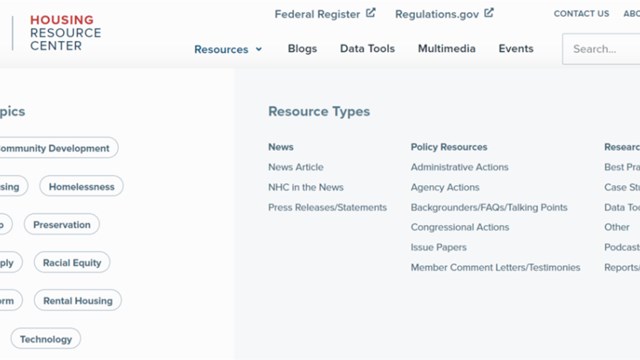A cooperative is generally organized as a so-called business corporation, just like, for example, IBM
or AT&T. Accordingly, shareholders of a cooperative have the same rights as shareholders in other New York business corporations to initiate shareholder derivative lawsuits.
In a derivative suit, the shareholder typically asserts that the members of the board have improperly authorized or engaged in conduct that is detrimental to the corporation and that the corporation is entitled to sue the individual board members for breach of their fiduciary duties, and surcharge them for the corporation's loss. Since the board members would not authorize a lawsuit against themselves, the reasoning goes, the shareholder should be permitted to assert such a lawsuit in the name of the corporation, as a representative of the corporation.
There may be other ways for a shareholder to challenge a decision by a co-op board, but in a derivative action if the shareholder is found to have benefitted the cooperative in some way by asserting the claim, then he or she may be able to recover legal fees from the corporation.
From the cooperative's viewpoint, derivative suits are a particularly acrimonious alternative and likely to discourage persons from serving on the board. They are also likely to be expensive; Directors and Officers insurance policies do not cover all the expenses that one might think they should.
The question is: Can a cooperative somehow terminate a derivative lawsuit where it appears that the lawsuit is more trouble than it is worth? In a recent decisionapparently the first specifically in the context of cooperativesJustice Stuart Cohen ruled that the answer is yes.
In Ungerleider v. One Fifth Avenue Apt. Corp., 623 N.Y.S.2d 711 (Sup. Ct. N.Y.Co. 1995), a shareholder initiated a derivative suit, asserting that all the current board members, and members of recent boards, wrongfully permitted apartment combinations without updatings of the certificate of occupancy (c/o), with the result that the cooperative's c/o was no longer valid. Ungerleider claimed that the board members should be personally surcharged for the increased costs to the cooperative of updating its c/o.
An Independent Investigation
The board's first step was to appoint a special litigation committee, consisting of three newly-elected board members who had not been named as defendants in the lawsuit. These committee members were also independent in that they had no business relationships with any of the defendant directors nor with the plaintiff. The independent committee was given the power to decide whether the co-op would support or oppose the suit. To assist in its investigation, the committee selected our firm as independent counsel.
As counsel, we reviewed the documentary record, consisting of over 10,000 pages, and conducted certain interviews. We then prepared a chronology of events, with documentary exhibits and an analysis of the legal issues presented by Ungerleider's claim.
Our report also summarized the factors to be considered by the committee in its deliberations. We explained that the committee should view the derivative claim as, in effect, a business proposal to the cooperative. In effect, Ungerleider was proposing that the cooperative could, by pursuing those claims, achieve a profit (i.e., a recovery of a monetary ffb award in excess of the non-recoverable expenses of litigation) and/or achieve some other desirable goal such as establishing a precedent of potential future relevance to the cooperative. The committee, in considering whether or not to accept this proposal, could and should engage in the weighing and balancing of legal, ethical, commercial, promotional, public relations, fiscal and other factors familiar to the resolution of many if not most corporate problems.
The committee then reviewed the chronology and report, questioning counsel on various points, and reviewed additional documents. It then determined to bring a motion in court seeking termination of the litigation on the basis that, in the committee's business judgment, pursuing the derivative claims was not in the cooperative's best interests.
The Business Judgment Rule
The motion to dismiss, vigorously opposed by the plaintiff, came before Justice Stuart Cohen, State Supreme Court, New York County. Justice Cohen dismissed the derivative action, explaining that a determination by a corporation about whether to pursue or to seek termination of a derivative action is a business judgment, subject to review in court only under the so-called business judgment rule, which is as follows:
The business judgment rule bars judicial inquiry into actions of corporate directors taken in good faith and in the exercise of honest judgment in the lawful and legitimate furtherance of corporate purposes... [T]he substantive aspects of a decision to terminate a shareholder's derivative action [made by a committee appointed by the Corporation's Board of Directors] are beyond judicial inquiry under the business judgment doctrine. . .
Accordingly, the court held that its inquiry was limited to two issues: the disinterested independence of the members of that committee and the appropriateness and sufficiency of the investigative procedure chosen and pursued by the committee. The court held that the committee members were undisputably independent and that the investigation undertaken by the committee, with the assistance of its independent counsel, was adequate.
A Valid Procedure
The procedure followed in this caseappointing a special committee of disinterested independent directors advised by independent counsel to review the cooperative records, litigation material, Building Department records, and confer with the architectis an appropriate way for a cooperative to exercise its power to determine whether a lawsuit such as this, nominally on behalf of the corporation, should be pursued. The court did not require that each committee member have reviewed the entire 10,000 page record, or have participated in every interview: a reasonable investigation, using independent counsel to do certain legwork, was sufficient. The committee at One Fifth Avenue effectively demonstrated that the areas and subjects examined were reasonably complete and that there has been a good faith pursuit of inquiry into such areas and subjects. What has been uncovered and the relative weight accorded in evaluating and balancing the several factors and considerations are beyond the scope of judicial concern.
The Ungerleider decision thus validates, on the facts of that case, a practical procedure for terminating a derivative action that other boards may seek to follow when they are faced with such a situation.
Mr. Claman is a member of Seiden, Stempel & Bennett, the law firm that served as counsel to the special litigation committee of the board of directors of One Fifth Avenue Apartment Corp.







Leave a Comment